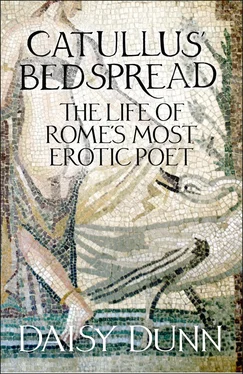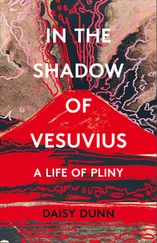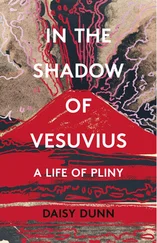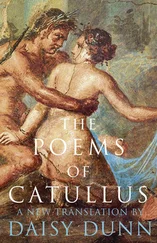In his mid-twenties, Catullus boarded a ship with a cohort of other young men in order to escape Rome for this very place. One needed to be a Roman citizen to join the prestigious cohort he did, which is a strong indication that Catullus’ father was a local governor or magistrate in Verona. 16For while the Veronese remained eager to acquire Roman citizenship, for as long as Catullus lived, their magistrates could secure the honour for themselves and their families. Bithynia lay south of the Black Sea, which Jason and his Argonauts were said to have sailed over on their Heroic Age mission to steal the Golden Fleece. The map of Rome’s new provinces, I discovered, overlapped with that which inspired the imagery of Catullus’ verse.
In the pages that follow I retrace this journey and the life Catullus described in his poems, from Verona to Rome, from Bithynia to Lake Garda. I have worked from the ancient sources that survive to draw out the story Catullus described in his ‘little book’ – his libellus.
Catullus’ Bedspread , then, is my little book about Catullus and his life. It is, as far as possible, a life in the poet’s own words: Catullus’ journey as told through his carmina , his poems or ‘songs’, which I have translated from the Latin. I see this very much as a joint venture: Catullus provides the poetry; I offer something of the world that informed it. I use extracts from his Bedspread Poem as epigraphs at the beginning of each chapter, in the manner of his poetry book – neither chronologically nor entirely haphazardly. If together he and I can bridge the distance that lies between us, then even the most labyrinthine of his poems should sing.
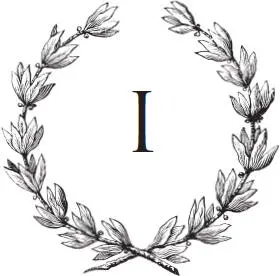
IN SEARCH OF CATULLUS

Since my fate and your determined virtue snatch you
Away from me against my will, though my tired eyes are
Not yet drunk with the dear shape of my son,
I shall not send you rejoicing with a happy heart
Or allow you to carry the signs of good fortune,
But first I shall free my heart of countless laments
(Poem 64, lines 218–24)
CATULLUS COULD HEAR his father in the dining room, conversing with Julius Caesar on the peculiarities of the world. He was used by now to travel-weary men arriving at his home, seeking soft cushions, pickled fish, and pork fattened on the acorns of Verona’s oak trees. As this one tucked into the feast laid out before him, he talked about the wonders of the Black Sea, savage Gauls, and Britons lining the chalk-white cliffs, remote and terrifying giants.
Catullus, who took more pleasure between the sheets than talking at the table with his father’s friends, stepped outside. 1The rain was pounding the streets which streamed and steamed with sewage. The Adige river was flowing quickly on the lap-like curve that held the town. As a boy, Catullus had often crossed its waters and felt the chill they bore from the Alps. He remembered the evening he first witnessed a locked-out lover, sitting in a doorway here on a lowly street. The youth had been crying, trying in vain to write a poem to voice his lament. For some time, Catullus had stood there, watching. Poor boy, his buttocks aching with the damp cold of the doorstep. Would not the door have more to say than the inconsolable youth? The door belonged to the house of a love-poet called Caecilius. Catullus transcribed its words:
It’s not my fault (I hope to impress Caecilius, I am now in
His charge), although they say it is my fault
No one can honestly say I’ve done anything wrong.
It’s true what people tell you – blame the door … [ line partly corrupt ]
Whenever some crime is discovered
Everyone shouts at me: ‘Door, it’s your fault!’
(Poem 67)
The door was not weeping but lamenting, slammed shut and berated with every misfortune that had passed through it. Catullus captured in the pace of its speech all the urgency and forcefulness a man would expect from one whose words had been stifled for most of its lifetime. With its ear for gossip, the door went on to reveal that, before Caecilius was resident in the house, a ‘virgin’ had moved in and confided in her female slaves. ‘Virgin’, because it transpired that the scamp had a former father-in-law, who lay with her when she discovered his son’s ‘little sword dangling more flaccid than a delicate beet’. In Catullus’ poem, one image was layered upon another, contorting what was masculine, if small, into an effeminate and unedifying vegetable.
The so-called virgin came from fertile Brixia (Brescia), to Verona’s west. ‘Brixia beloved mother of my Verona,’ Catullus exclaimed, reflecting on the Gauls who had travelled between it and his home. 2The Gauls and their many tribes were inclined like geese to migrate whenever the desire took them. 3Lately, Gallic tribes had been flying through Transalpine Gaul, to Verona’s north, endangering Rome’s control over its provinces. So Caesar rested here, at Catullus’ father’s home, wearied by the Gallic War he was now waging. It was 55 BC.
Catullus had come back to Verona, where he reflected nostalgically upon his roots. It was a Roman colony now, but remained in his mind a place of Gauls and Etruscans. 4While the sleeping fields of Brescia evoked his Gallic line, the summers he spent in his family villa on nearby Sirmio (Sirmione), an attractive peninsula on Lake Garda, tended to carry him back into the arms of his ancient ancestors. Whenever its waves shivered in the breeze, he would dream of the Etruscans, the great lords of Italy before the rise of the Romans, and their curious origins in faraway lands.
They had come to Italy to escape a famine that had struck their home in ancient Lydia (near Sart, Turkey). In around 1200 BC, their king had divided the surviving people into two groups, and drawn lots. The more fortunate ones followed his son Tyrrhenus out of Lydia to Smyrna (Izmir), and onwards for distant coasts. In the north and the centre of Italy they scattered, and called themselves ‘tyrrhenians’ after their prince, or ‘ tusci ’, ‘Etruscans’. Their descendants preferred ‘Umbrians’ and ‘Tuscans’. 5
Part Gaul, part Etruscan, Catullus never doubted that he had Asiatic blood, however Italian he looked. His hair was light brown, and he styled it like a man who was afraid of losing it. Combed forward, it formed the beginnings of a fashionable fringe, which tickled the deep olive skin of his forehead. He had a round, boyish characterful face, which a well-meaning woman might tell him was sweet or endearing, but then immediately regret saying anything at all. He was, in sum, shapely, especially about the arms. His waist was thick (Catullus being no stranger to the odd hors d’oeuvre) but his nose was delicate, and gently curving brows met at its arch. He had full lips and a sincere smile, but his most distinctive features had to be his eyes. They were large and brown, though the left one drooped slightly beneath a heavy lid, giving the impression that it was half closed. The portrait, discovered at the site of his family home on Sirmio, had no title to identify it as the poet Catullus, only the clues that lay in the painted plaster. The young man looked contemplative and refined as he grasped a scroll in his left hand, while he drew the fingers of his right with pride across its edges, edges he perhaps ‘polished off not a moment ago with dry pumice stone’ (Poem 1). The distinctive lazy eye was meant to make him recognisable, even years later. He wore the toga of the late Republic with tunic, fringed with a narrow purple band.
Читать дальше
